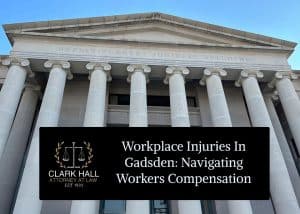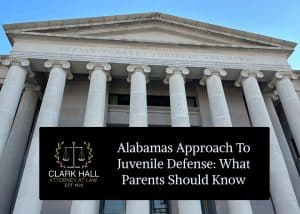## Understanding Bail Bond Hearings: What to Expect
Navigating the complexities of the legal system can be daunting, particularly when it comes to understanding the intricacies of bail bond hearings. These hearings often serve as a crucial juncture in the judicial process, determining whether a defendant can secure temporary freedom while awaiting trial. A bail bond hearing is primarily designed to decide whether a defendant is eligible for bail, the conditions of the bail, and the amount of bail. They can be complex and hinge on numerous factors, including the nature of the charges, the defendant’s criminal history, and the risk of flight.
These hearings are not just procedural formalities; they are pivotal events that can influence the course of a legal case. Securing the right outcomes during a bail bond hearing can have significant implications, allowing defendants to maintain their daily lives, families, and employment while their case proceeds. Understanding what to expect and how to prepare for these hearings is vital for defendants and their families.
At Clark Hall, Attorney at Law, we strive to demystify the experience of bail bond hearings for our clients. Our dedicated team works tirelessly to ensure that all aspects of the hearing are clear, prepared, and favorable to our clients. By drawing on our extensive knowledge of Alabama’s legal landscape, we offer representation that is both skilled and committed to achieving the best possible outcomes at bail bond hearings.
## Decoding the Essence of Bail Bond Hearings
Bail bond hearings are judicial proceedings where the court determines whether a defendant can be released from custody during the period leading up to their trial. This decision is typically based on a risk assessment which weighs several factors, including the severity of the alleged offense, the defendant’s previous criminal record, their ties to the community, and the likelihood of them returning for trial. The court must ensure that the release of the defendant does not pose a risk to society or compromise the integrity of the judicial process.
The purpose of a bail bond hearing extends beyond merely setting bail; it is also about balancing the defendant’s right to freedom against the interests of public safety and the administration of justice. The mechanics of these hearings demand a thorough understanding of the legal system, the statutory provisions governing bail, and the relevant case law that could influence the court’s decision.
At the heart of any bail bond hearing is the bail amount, which may need to be secured through a bond. If set too high, it could deny the defendant their liberty, effectively turning the bail system into a pre-trial punishment. Alternatively, if set too low, it could fail to act as a sufficient deterrent for flight or re-offense. Thus, these hearings are crucial in ensuring that the bail is fair, reasonable, and aligned with the principles of justice.
## The Significance of Bail Bond Hearings in the Legal Context
Bail bond hearings serve as a critical component of the legal framework, ensuring that the justice system operates fairly and efficiently. They are rooted in the principle of presumed innocence until proven guilty, which underscores the importance of allowing defendants the opportunity to continue their lives outside of custody while preparing their defense. These hearings reflect the balance the law must maintain between safeguarding community safety and upholding individual freedoms.
An essential function of bail bond hearings is to provide the court with the necessary tools to enforce its decisions while minimizing the risk of prejudice against the defendant. From the court’s perspective, these hearings are instrumental in maintaining judicial efficiency, as they prevent overcrowding in detention facilities and reduce the burden on the penal system.
Furthermore, bail bond hearings reinforce the accountability of the judicial process. They compel law enforcement and attorneys to present their findings promptly and transparently, ensuring that defendants are made aware of the charges against them and the conditions of their release. Understanding the fundamental importance of these hearings within the broader context of criminal proceedings can significantly aid in navigating them successfully.
## Illustrating bail bond hearings with Real-World Cases
Examining real-world examples of bail bond hearings can peel back the layers of how these intricate legal processes unfold. Consider a case where an individual with no prior criminal record is charged with a minor offense. In such instances, the court might opt to set a lower bail or release the defendant on their own recognizance, trusting that they will return for trial without significant monetary security. This approach reflects the court’s discretion in tailoring each bail decision to the specifics of a case.
Conversely, serious allegations, such as assault or theft, might see the court imposing higher bail amounts. The intent here is to mitigate the perceived risk posed by the defendant. However, even in such scenarios, a well-prepared defense with sufficient evidence of ties to the community, employment, and lack of flight risk could persuade the court to reconsider the bail conditions or amount, demonstrating the profound impact quality legal representation can have.
In some notable cases, the conditions imposed during bail hearings have become precedential, shaping future bail deliberations. These cases highlight the evolving nature of bail bond hearings and their capacity to influence legislative changes and reform in the broader criminal justice system. Leveraging historical hearings’ insights can guide current defense strategies and help predict potential outcomes.
## Proactive Steps You Can Take Leading to a Successful Hearing
Preparation is key when approaching a bail bond hearing. By taking thoughtful steps in advance, defendants and their families can significantly affect the hearing’s outcome. Understanding the charges and the penalties can form the cornerstone of effective preparation. Clarifying misunderstandings about the alleged offenses and their potential legal consequences can better position a defendant for a favorable bail decision.
Gathering and organizing personal documentation that illustrates the defendant’s ties to the community can support an argument for lower bail. This could include proof of stable employment, family connections, and affidavits from community members or employers affirming the defendant’s commitment to returning for trial. These documents can demonstrate the defendant’s reliability and reduce the perceived flight risk.
Perhaps one of the most critical steps is consulting with a seasoned attorney who can craft a persuasive argument tailored to the specifics of the case. Legal counsel can preemptively address potential prosecutorial arguments, navigate complex legal provisions, and present mitigating factors that might not be immediately apparent. Early involvement of competent legal representation can be pivotal in securing release conditions that are fair and just.
## Navigating Common Pitfalls: Mistakes to Avoid
There are several common mistakes that defendants and their families should be mindful of when approaching bail bond hearings. One such pitfall is underestimating the importance of these hearings and the effort required to prepare. Given the stakes involved, treating these hearings as minor procedural events rather than pivotal legal proceedings can result in unfavorable outcomes.
Another mistake is neglecting adequate documentation or proof of personal circumstances. Failing to present a well-rounded picture of the defendant’s life can lead to adverse decisions, such as significantly higher bail amounts or more stringent conditions. A thorough presentation can help to assuage the court’s concerns about the defendant’s reliability and community ties.
Finally, attempting to navigate the legal system without professional legal representation is a trap that can severely impact the hearing’s outcome. Having an attorney who is well-versed in the nuances of bail bond hearings can not only mitigate potential errors but also bolster the defense’s overall strategy.
## Knowing When to Seek Legal Advice
Understanding when to seek legal advice can make a substantial difference in how bail bond hearings unfold. Defendants may often be unfamiliar with the intricacies of legal jargon, the breadth of legal options available, or how to effectively communicate their situation to the court. Consulting an attorney early in the process can help eliminate these uncertainties and arm the defendant with informed strategies.
Seeking legal counsel is particularly pressing when a case involves complex or severe charges that could lead to high bail amounts or stringent conditions. Attorneys can offer invaluable insights into the nuances of the charge, the probable course of hearings, and the legal precedents that may influence them. Their involvement can also expedite the process, preventing unnecessary delays and missteps.
Moreover, openness to legal advice should extend beyond bail bond hearings. An attorney can provide continuous support, helping defendants navigate subsequent stages of their case while ensuring all actions align with a strategy aimed at preserving the defendant’s best interests. Legal counsel is not merely an option but a necessary component of a defendant’s toolkit in building a robust defense.
## Advantages of Legal Representation at Bail Hearings
The presence of legal representation at bail bond hearings can significantly sway outcomes in favor of the defendant. Attorneys proficient in criminal law bring a wealth of knowledge and strategic insight, which can help demystify complex legal concepts and tailor defense arguments to specific case circumstances. This understanding positions them to engage effectively with prosecutors and judges, advocating fiercely for the defendant’s rights.
One substantial advantage is the attorney’s ability to present compelling arguments that highlight mitigating factors, such as community ties, the defendant’s character, or potential for rehabilitation. Lawyers are adept at constructing narratives that humanize the defendant, advocating for conditions that support their continued liberty while fostering their capacity to contribute positively to society.
Finally, a seasoned attorney acts as a critical third-party who can negotiate terms and conditions. Whether through opening channels of communication with the prosecutor’s office or petitioning the court for fair bail conditions, legal representatives play an indispensable role in steering the judicial process towards equitable resolutions, allowing defendants to resume their lives with minimal disruption.
## How Clark Hall, Attorney at Law, Can Assist You
At Clark Hall, Attorney at Law, we are committed to providing personalized legal representation that prioritizes your best interests. Our wealth of experience serving clients across Alabama equips us with a distinctive understanding of the state’s legal environment, making us well-suited to navigate the complexities of bail bond hearings with a focus on achieving favorable outcomes for our clients.
Our client-centric approach ensures that every legal strategy we develop is customized to meet the unique circumstances of each case. By conducting comprehensive evaluations and using robust defense methods, we ensure that your rights are zealously protected throughout the bail hearing process. We leverage our knowledge, network, and resources to present evidence and arguments that demonstrate your dependability, minimizing retention and maximizing your chances for a fair hearing.
When you choose Clark Hall, Attorney at Law, you opt for a legal partner dedicated not just to success in the courtroom, but to understanding and advocating for your individual story and situation. By providing clarity, support, and a solid plan of action, our firm stands with you through every stage of your legal journey.
## Frequently Asked Questions (FAQs)
What is a bail bond hearing?
A bail bond hearing is a legal proceeding where a judge determines whether a defendant can be released on bail and, if so, the conditions of that bail, including the bail amount.
How is the bail amount decided?
The bail amount is determined based on various factors including the severity of the alleged offense, the defendant’s criminal history, the risk of flight, and community ties.
Can bail be denied?
Yes, bail can be denied if the court deems the defendant poses a risk to public safety, has a likelihood of fleeing, or if the charges are severe.
What happens if I cannot afford the bail set by the court?
If you cannot afford bail, you may seek assistance from a bail bondsman, or your attorney can request a hearing to argue for reduced bail.
What are the conditions of bail?
Conditions of bail may include regular check-ins with law enforcement, surrendering of passport, abstinence from certain activities, and refraining from contacting certain individuals.
Can bail conditions be changed?
Yes, bail conditions can be modified by the court upon request, often with new evidence or a change in circumstances.
What role does a lawyer play in bail bond hearings?
Lawyers advocate for fair bail conditions, present evidence of mitigating factors, negotiate bail terms, and provide legal representation to ensure your rights are protected.
How long does a bail bond hearing typically last?
Bail bond hearings can vary in length, but they generally last from a few minutes to an hour, depending on the complexity of the case and the court’s schedule.
Can I represent myself at a bail bond hearing?
While it is possible to represent yourself, it is strongly recommended to have a lawyer who understands the legal system and can effectively advocate on your behalf.
What should I bring to a bail bond hearing?
It is advisable to bring documentation demonstrating community ties, employment, and financial status, along with any evidence that could support a request for lower bail.




